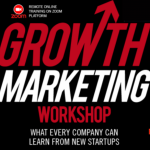By The Malketeer
Have you heard about the latest trend on TikTok and Instagram?
It’s called deinfluencing, and it’s simply about influencers telling their followers what NOT to buy or support.
Deinfluencers are individuals who use social media platforms to vehemently discourage their followers from buying certain products or supporting causes under the noble guise of sustainability and wastage.
Many are questioning if TikTok’s new deinfluencing trend is genuinely an antidote to a global culture of overconsumption, or is it just another marketing ploy to stay relevant during tough economic times? Or for some politicians in Bolehland, an innovative opportunity to get elected?
Interestingly, on the home front, as Malaysia gears up for its state assembly elections in Kelantan, Terengganu, Kedah, Penang, Selangor and Negeri Sembilan – in July or August 2023 – there is a growing concern about the role of this emerging movement of deinfluencers in further shaping the nation’s political landscape besides their usual task of influencing market sentiments and brand performances.
The Deinfluencing movement started surfacing in January 2023 in the United States, seemingly as an authentic attempt to join the dots between trend cycles, unethical labour practices and excess waste, taking root in the fashion and beauty industry. It has been reported that the deinfluencing hashtag has been viewed more than 100 million times on TikTok.
However, the impact of deinfluencers on an election process can be a pretty sophisticated and highly controversial issue that requires indepth study which Malaysia’s upcoming state assembly polls could throw up some fascinating answers. It is an established fact that Malaysia is a country where social media usage is high. Influencers can sway public opinion and mobilise voters in favour of a particular political party or candidate.
This is particularly true for our #Undi18 voters who are more likely to be strongly influenced by social media and online content.
Just like the influencers, the unexpected emergence of deinfluencers can also make an impact on market sentiments and brand performances. With their ability to reach millions of followers in real-time, deinfluencers can also make or break a brand’s reputation with a single post.

Deinfluencing is also Influencing, much like a double-edged sword.
That’s why I cannot help wonder if the “Green Wave” of GE15 was a case of deinfluencers trouncing influencers. After all hate speech and poison pen letters of the past have run rampant for decades now, with no signs of corrective action. Deinfluencers are simply individuals who use social media platforms to vehemently discourage their followers from buying certain products or supporting causes under the noble guise of sustainability and wastage.
As Malaysia’s state assembly elections for the six states approach, the impact of the deinfluencers is a worrisome concern. As responsible citizens, we must also be aware of their potential impact on voter behaviour and the rakyat as a whole.
Deinfluencers may lack the expertise or fact-checking rigour of traditional news media, leading possibly to the spread of misinformation. Unlike traditional political advertisements or endorsements, deinfluencer posts may not be regulated or monitored for accuracy and fairness, leading to the spread of misinformation that undermine the integrity of an electoral process.
That’s why I am here to deinfluence you on whom NOT to vote!
To read more from The Malketeer, click here.
MARKETING Magazine is not responsible for the content of external sites.









